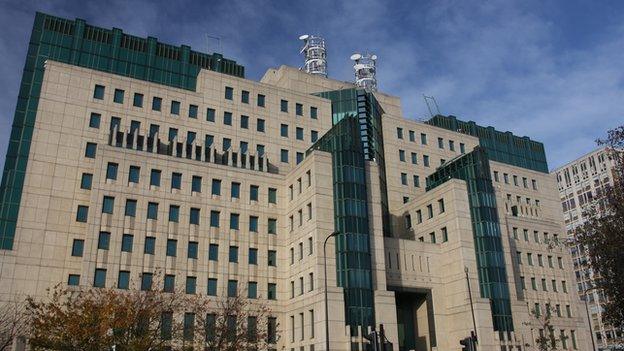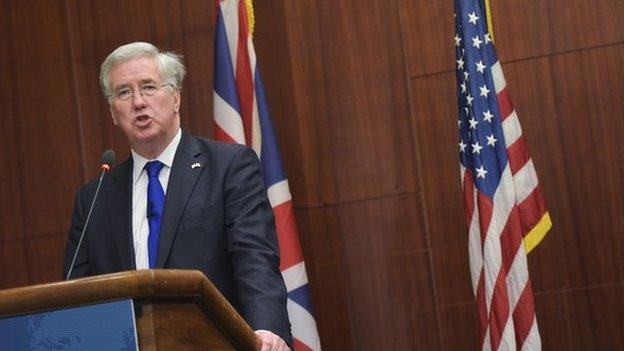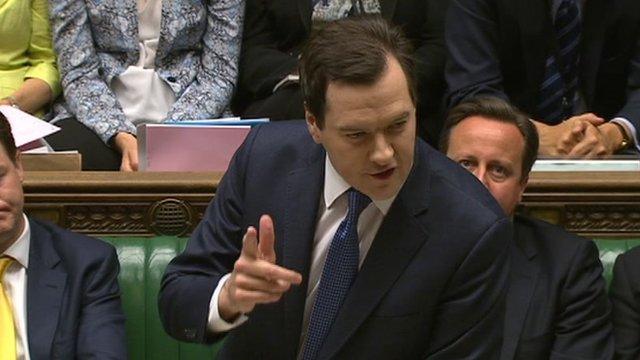Budget 2015: What is the new Joint Security Fund?
- Published

The Secret Intelligence Service MI6, along with the MI5 Security Service and GCHQ will benefit from the fund
The government's new Joint Security Fund is to allocate an extra £1.5bn annually for military and intelligence agency spending across government.
This important and somewhat mysterious announcement was included in the chancellor's Budget speech on Wednesday, and it seems to have taken nearly every Whitehall department by surprise.
"We only became aware of it yesterday so we are still studying the detail," said one insider, who was as curious as I was to find out how it will actually work and what difference it will make.
The announcement may have come from the Treasury but it flows from concerns among those on the National Security Council (NSC), external that all available funds should be freed up in the fight against terrorism.
"Security is the number one job of the government," said a Treasury spokesperson - "and the forces that threaten us do not distinguish between Whitehall budgets. So this fund will make sure the money goes to the right place".
Bid for money
So how will it be shared, what will it be used for, and who decides which department gets what? None of this has yet been decided.
The fund will build up gradually, reaching a peak of £1.5bn annually by the end of this Parliament in 2020.
It will be shared between the Foreign Office (FCO), Ministry of Defence (MoD), the Department for International Development (DfID) and the three intelligence agencies: MI5, MI6 and GCHQ.
Departments will have to bid for funding from the pot but it has yet to be decided who will make the allocations.
All this, says the Treasury, will be decided in two reviews coming this autumn: the Strategic Defence & Security Review (SDSR) and the Spending Review.
The three security and intelligence agencies already get a combined budget that in 2013-14 amounted to £2.48bn, known as the Single Intelligence Account (SIA).
How that breaks down between the three agencies is kept secret but counter-terrorism remains the priority and spending on that is to be protected in real terms, rising in line with inflation.
'Proper coordination'
Although the details of this new fund are sketchy - to say the least - it has been broadly welcomed by the departments concerned.
"The big lesson of the 7/7 London bombings", said a Whitehall insider, "was that we needed more co-operation and integration to break down silos (inter-departmental barriers) and work more closely.
And Crispin Blunt MP, chairman of Parliament's Foreign Affairs Committee, external, said: "The creation of a Joint Security Fund is a significant step forward for proper coordination of all national security budgets.
"The Foreign Office, not just military and intelligence agencies, should be able to access funding from the Joint Security Fund so that policy-making capacity can be strengthened to allow the necessary analysis and oversight of resources deployed for national security."
Others have pointed to the recent actions by Russia in Ukraine, notably Crimea, as an example of 'hybrid warfare' (joint action by different arms of government) that, while hugely unwelcome in the West, have achieved successful outcomes for Russia on the ground.
But there is no suggestion, said a Whitehall official, that Britain had any intention of following Russia's example.
- Published8 July 2015

- Published11 March 2015

- Published26 June 2013
